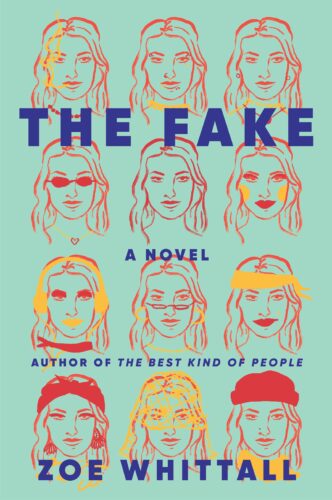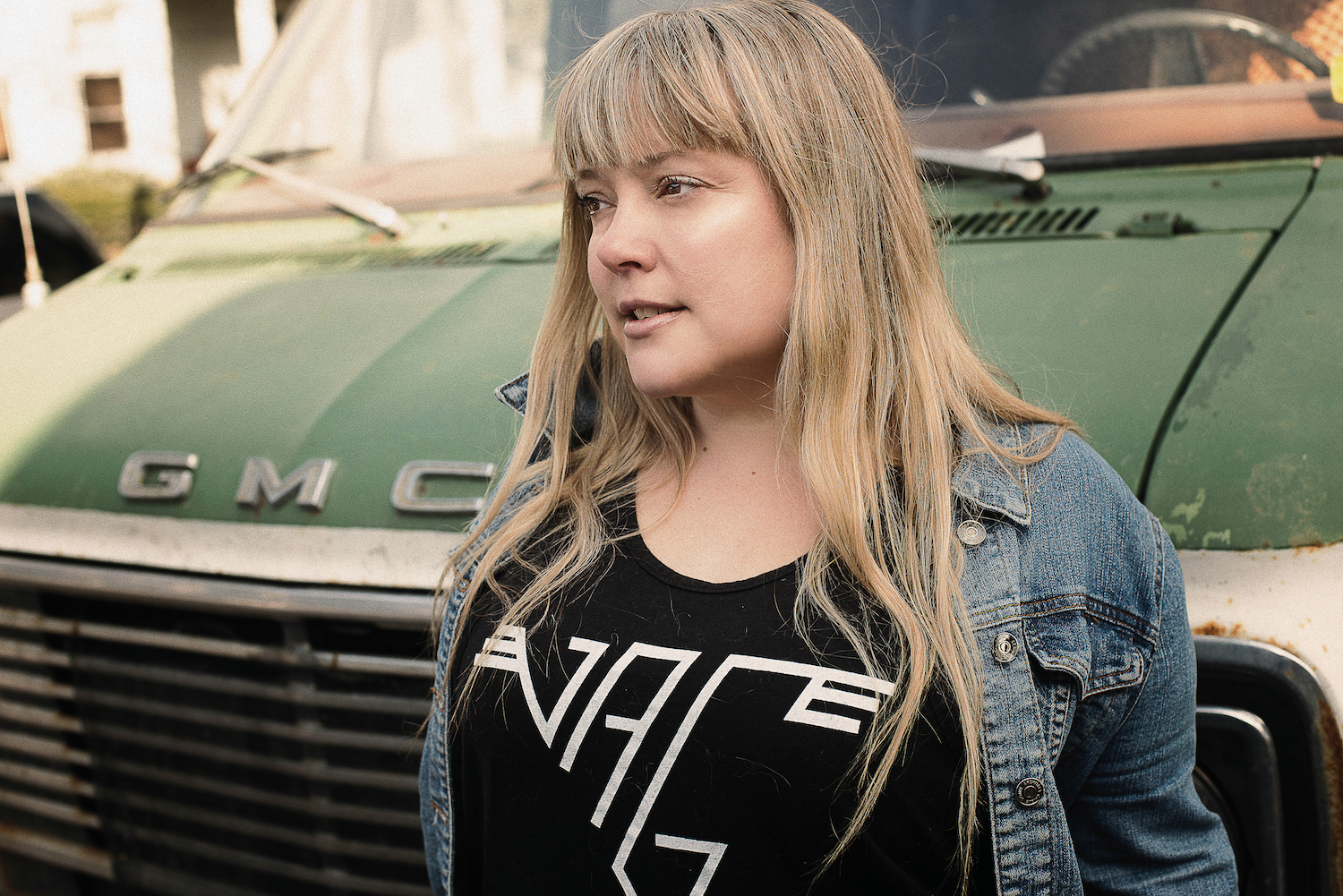Exciting, debaucherous, tender but deliciously wry, The Fake is utterly unputdownable. The latest page-turning novel from Canadian author Zoe Whittall, who’s given us so many great reads, including bestsellers The Spectacular and The Best Kind of People, revolves around three deftly-written characters: Shelby, Gibson, and Cammie. One has recently left a sexless marriage, one is living with extreme anxiety and barely coping under the weight of grief, and one is a pathological liar.
Although unlikely, their lives intersect, connected through a web of lies, and it’s the compulsive lying that pushes the story forward, and what kept me racing back to the page. Although not a mystery, The Fake almost reads like one. You’ll find yourself desperately looking for clues, alongside the characters, in an effort to get to the truth. The motives are baffling and the story is wild, but also believable and relatable—we’ve all met or known someone who is capable of monstrous manipulation, who prefers a made-up life over reality. It’s a chilling story, but Whittall inserts clever humour throughout.

As a Torontonian, I especially loved the numerous local references. The story winds through College Street, Bloor Street, Palmerston Avenue, Roncy and Spadina, with colourful nods to well-trodden spaces like High Park, The JCC, Banjara Indian Cuisine, and the LCBO.
Always curious to know how writers write, and what turns them on, I connected with Zoe to ask her some things.
What was it that compelled you to write The Fake?
I’m fascinated by deceptive characters and pathological liars. I had a couple of experiences in my 20s with people I’d call compulsive liars and I always intended to write something about it. During the pandemic lockdown I had the time to really sink into it. It’s a uniquely dizzying thing to be taken in by someone who doesn’t care about the truth. Most people – especially writers – are quite inward, often asking ourselves if we know the truth about who they are. Meeting someone who refuses to truly be known is disorienting.
What themes or questions were you most curious to explore?
I think that shame is an excellent root for narrative, and there is so much shame in being conned. Especially when you’re being told someone is sick or has experienced violence or trauma and you spend a lot of time caring for that person – on the one hand it’s good to know your instinct is to feel empathy and offer support, but to be fooled in this way is still a really humiliating experience. Shelby and Gibson are both in a vulnerable spot at the start of the book, grieving and depressed, and Cammie is this bright light that shakes them up. I was interested in writing a scam narrative that wasn’t entirely black and white, where the villain is a villain but she also does care for them in ways that change their lives in positive ways.
We love how many Toronto locations and venues make it into the story. How do you decide what makes the cut?
Usually I choose locations I know well because I don’t actually conjure settings very well. I often give character’s apartments I’ve lived in, streets I’m on a lot. I used to rent on Palmerston Ave, where Shelby lives. I once went to a support group at the JCC and lived nearby on Spadina briefly. Gibson’s apartment on Ossington is where I lived at 28. It helps me with the specific sensory details. And I’m not a very visual person and lately I’ve been wondering if I have aphantasia, where you can’t visualize at all or very well. I’ve always been unable to ‘imagine myself on a beach’ during meditation, for example. I see blackness behind my eyes when I close them. So I tend to write about places I’ve been. Also one time a publisher tried to dissuade me from setting a book in Toronto because people hate Toronto and so sometimes I do it for spite.
Anxiety is something that drives Shelby’s behaviour, and she’s specifically preoccupied with illness and dying. Has the pandemic played a role in influencing your writing?
Everything I write – even if it’s a story about martians going to war with unicorns – is about anxiety. The poet Tony Hoagland said every writer has an irresolvable obsession – and mine is anxiety. But with a character like Shelby I get to write about it directly – how anxiety disorder or OCD can be something that comes and goes in your life and becomes acute and then recedes. Shelby is at the point where she’s lived with it so long that she’s become an expert in it, and she knows how to take care of herself, until her wife Kate dies and she experiences a relapse.
I like writing depressed and anxious characters. All of my novels, no matter what the plot or theme or subject matter, are about anxiety. When I’ve been single and I meet a new date and they don’t have any anxieties I can’t date them, I feel like I need at least a little neuroticism in order to relate to them.
Both Shelby And Gibson before they meet Cammie are very depressed and stuck in their lives and when you break down the lives of depressed people into story it’s actually quite funny, the specific details of Gibson being unable to unpack his apartment and drinking out of one plastic cup is like, deeply human and odd and absurd.
Grief is a major theme in The Fake. What interests you most about grief? What conversations do you think we need to be having more of?
I was very interested in writing about grief because I was in such an isolated place while writing the book and had just suffered two significant losses and it’s such a difficult thing to write about grief without resorting to falseness and sentiment and the tropes of the sad girl. Real grief is ugly and unpredictable, absurd and boring. The endless nature of it is so banal yet you have to work so hard to move any of the feelings. There’s a strange confinement to grief – and in Shelby’s case it’s sometimes literal – but also there’s freedom in going so low you don’t have to mask who you are anymore. It’s a hall pass from life while you cannot be in it as the rest of the world keeps on keeping on. Writing Shelby in that state was an interesting creative challenge – what form would suit the fragmentary nature of that emotional story? How can a reader stand to be around her for very long? Ultimately the answer to that problem was humor and absurdity.
Could you paint a picture of what writing this book looked like? Late nights… long walks… post-its covering your walls?
I wrote a lot in an armchair by my front window in my Toronto apartment during the first three lockdown periods. I took walks before starting to work, and breaks to read or watch endless TV, or have visits with people on the porch. It was strange to write towards the hope of future readers not knowing what the future was going to look like.
What’s some writing advice that has always served you well?
- No one will ever care about your book as much as you do.
- Don’t think about publishing while writing.
- If you want to write contemporary novels you should read contemporary novels.
- While editing your book take out every instance of a character smiling or shrugging.
- You will never be able to control how a book is read so just smile and say thanks for reading when people come up to you with theories about the book that seem utterly insane.
Find The Fake wherever you buy books, and follow Zoe Whittall on Twitter—she’ll make you laugh.



 Follow Us On Instagram
Follow Us On Instagram
